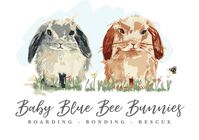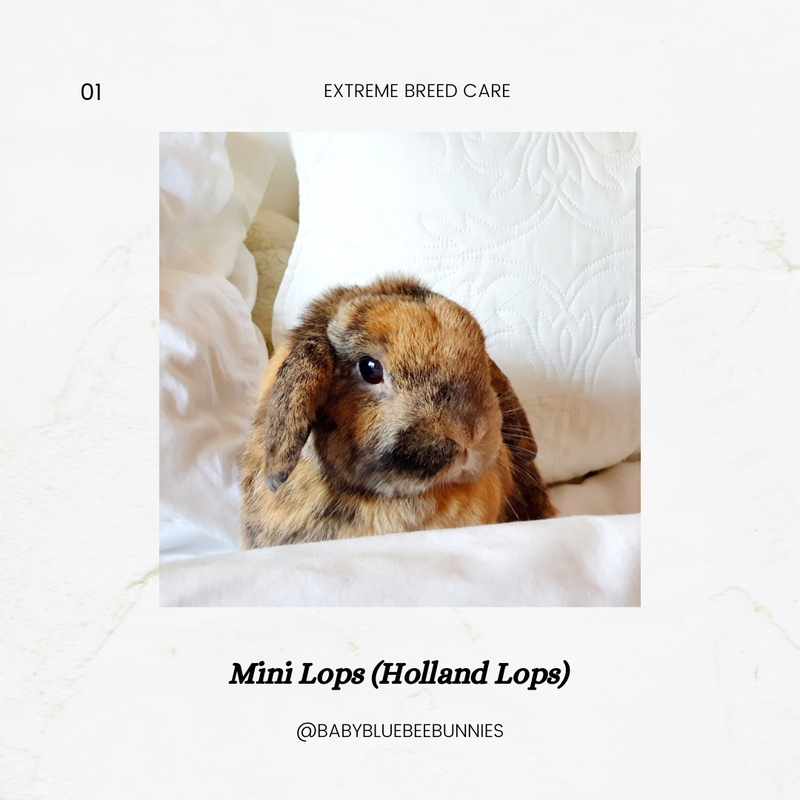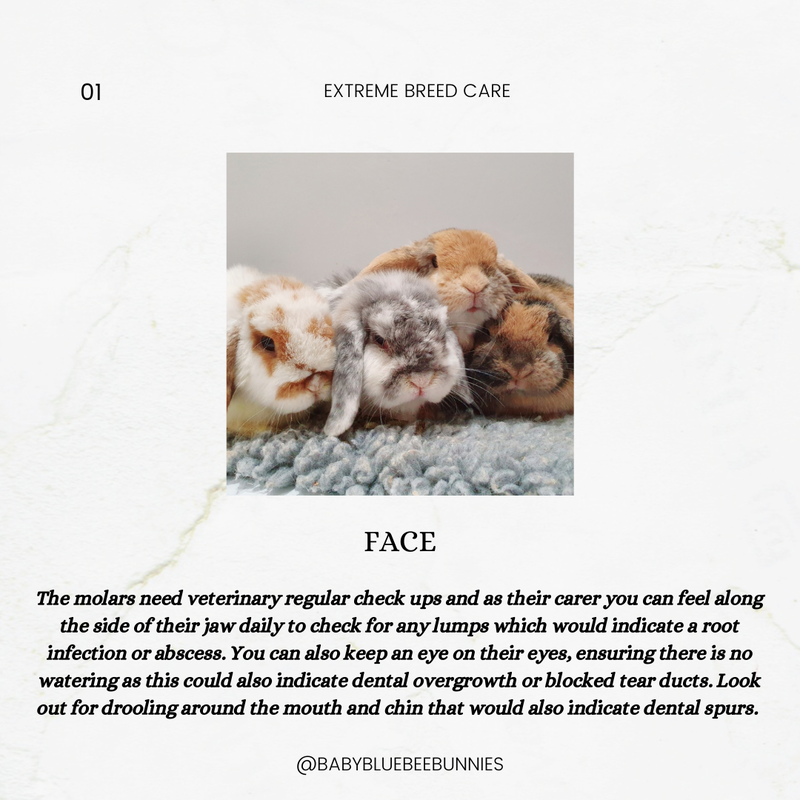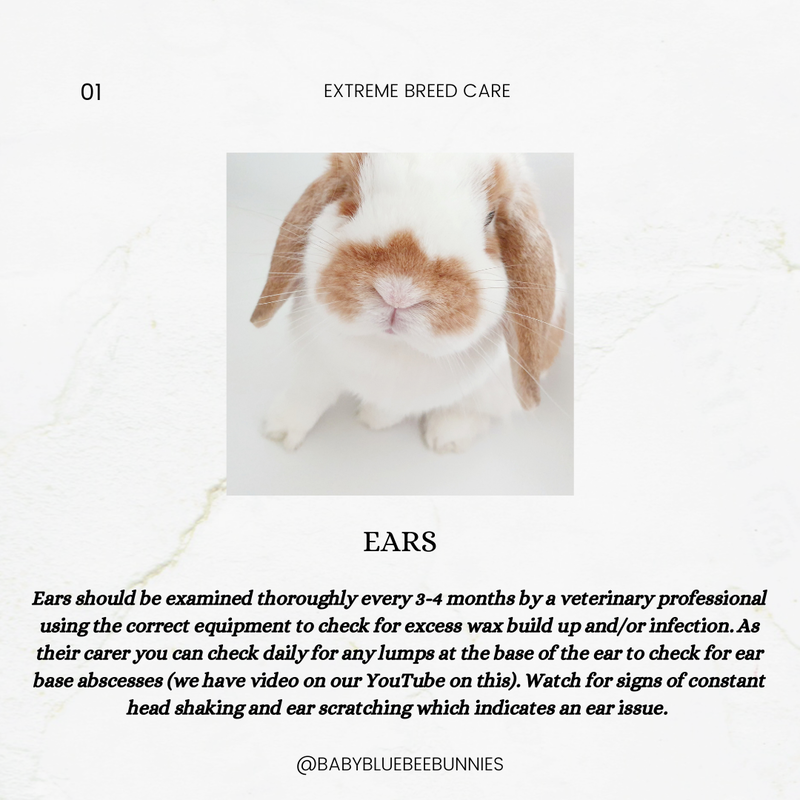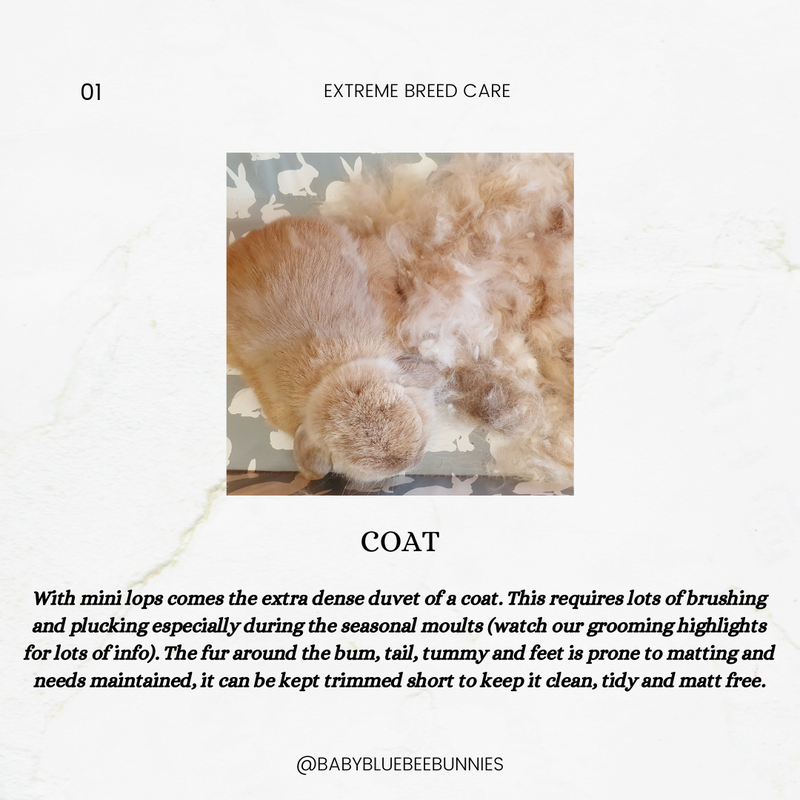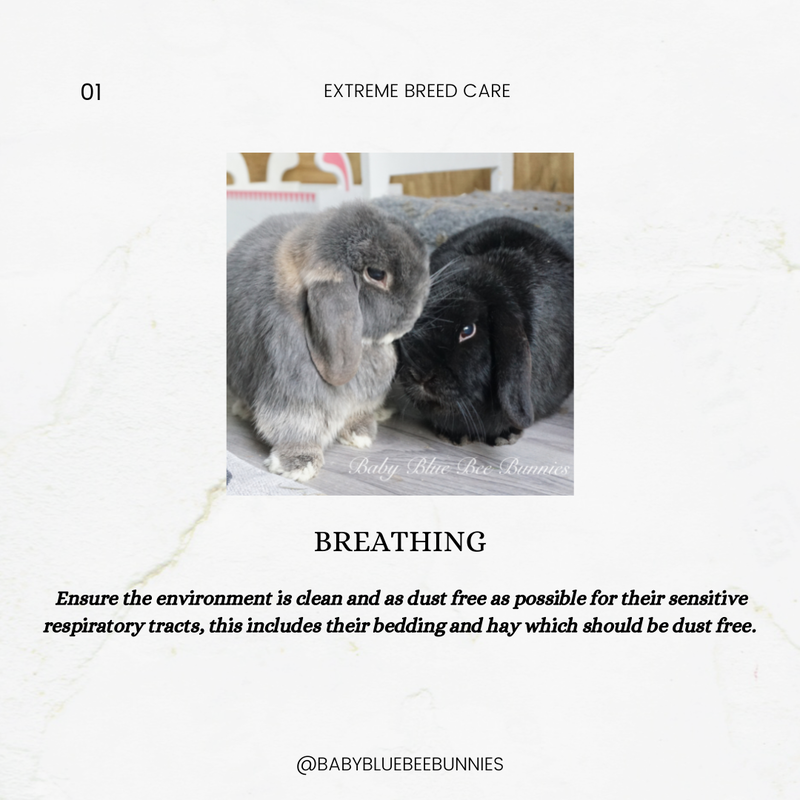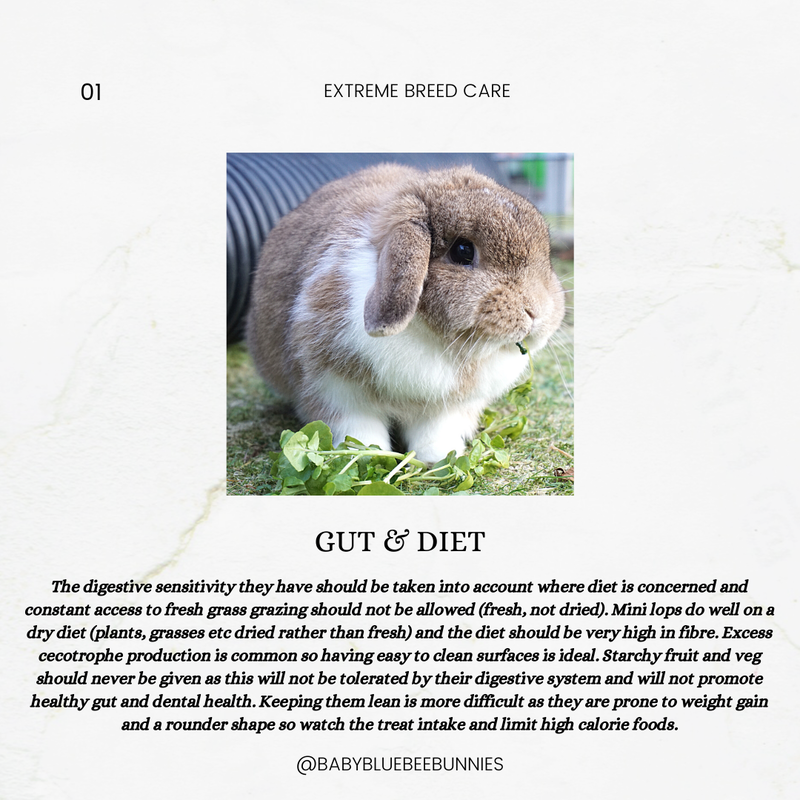Mini Lops
Mini Lops, also known in the US as 'Holland' lops are the smallest lop breed at around 1-1.5kg in size. Featuring a short, compact body, round face, large round eyes and ears lopped they are the most popular breed currently in the UK.
With this breed, comes a lot of care. What are these care needs?
Face - the molars need veterinary regular check ups and as their carer you can feel along the side of their jaw daily to check for any lumps which would indicate a root infection or abscess. You can also keep an eye on their eyes, ensuring there is no watering as this could also indicate dental overgrowth or blocked tear ducts. Look out for drooling around the mouth and chin that would also indicate dental spurs.
Ears - ears should be examined thoroughly every 3-4 months by a veterinary professional using the correct equipment to check for excess wax build up and/or infection. As their carer you can check daily for any lumps at the base of the ear to check for ear base abscesses (we have video on our YouTube on this). Watch for signs of constant head shaking and ear scratching which indicates an ear issue.
Gut & Diet - the digestive sensitivity they have should be taken into account where diet is concerned and constant access to fresh grass grazing should not be allowed (fresh, not dried). Mini lops do well on a dry diet (plants, grasses etc dried rather than fresh) and the diet should be very high in fibre. Excess cecotrophe production is common so having easy to clean surfaces is ideal. Starchy fruit and veg should never be given as this will not be tolerated by their digestive system and will not promote healthy gut and dental health. Keeping them lean is more difficult as they are prone to weight gain and a rounder shape so watch the treat intake and limit high calorie foods.
Breathing - Ensure the environment is clean and as dust free as possible for their sensitive respiratory tracts, this includes their bedding and hay which should be dust free.
Coat - with mini lops comes the extra dense duvet of a coat. This requires lots of brushing and plucking especially during the seasonal moults (watch our Instagram grooming highlights for lots of info). The fur around the bum, tail, tummy and feet is prone to matting and needs maintained, it can be kept trimmed short to keep it clean, tidy and matt free.
As always, #adoptdontshop and don't add to the breeding of these extreme breeds. This #caringforextremebreeds series is in conjunction with our #endextremebreeding campaign, we are highlighting how to care for these buns who already exist and need our help. Always have a good rabbit savvy vet who can detect issues and companionship is key.
